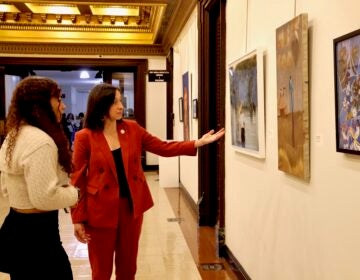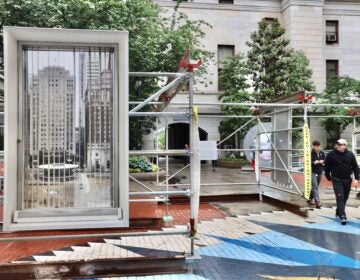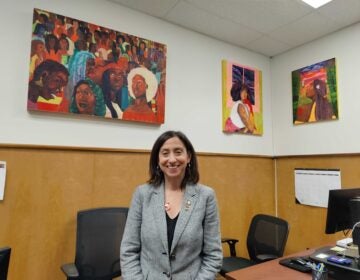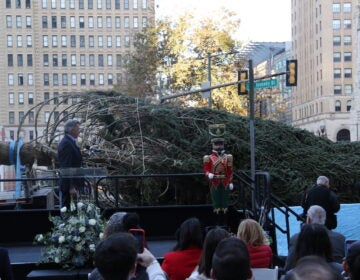Philly leaders want to know: What do you want the city’s arts to look like?
A series of a dozen town hall-style planning sessions by Creative Philadelphia will inform the city’s first comprehensive cultural report.
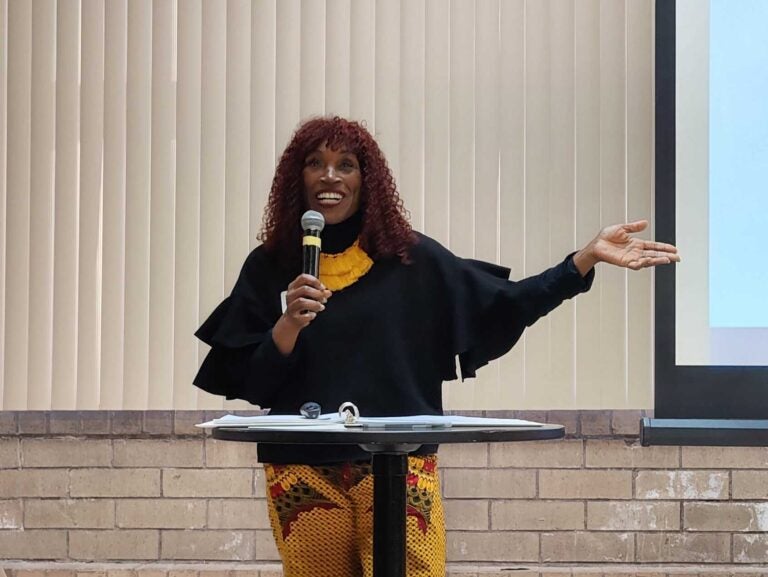
Philadelphia Chief Cultural Officer Val Gay guides participants through a series of discussion points at the first Shape Philly cultural planning session in 2025. (Peter Crimmins/WHYY)
From Philly and the Pa. suburbs to South Jersey and Delaware, what would you like WHYY News to cover? Let us know!
Philadelphia’s chief cultural officer wants to know what you think about arts and culture in the city.
Val Gay, as the head of Creative Philadelphia, has launched a series of town hall-style public planning meetings in every council district throughout the city, designed to elicit feedback from participants through a series of questions and prompts.
Feedback from these sessions will inform a report and action plan for how arts and culture will be incorporated into city functions. Gay said it will be the first comprehensive cultural plan in city history to help grow the creative economy, invest in creative professionals and cultural spaces, strengthen communities, and increase creative access in all neighborhoods.
“We want to expand, frankly, the definition of arts and culture,” she said. “We want to expand beyond South Broad Street, which is world-class, but so is just about every neighborhood in Philadelphia. Everyone’s opinions, everyone’s ideas will be a part of the data that we use to create our first-ever cultural plan.”
About 50 people came to the first public meeting, held at Zion Baptist Church in the 8th council district of North Philadelphia. Attendees were asked to use their individual cell phones to access a digital platform, where they were taken through a series of prompts and discussion points. The anonymous responses were collected and shared with the room in real time.
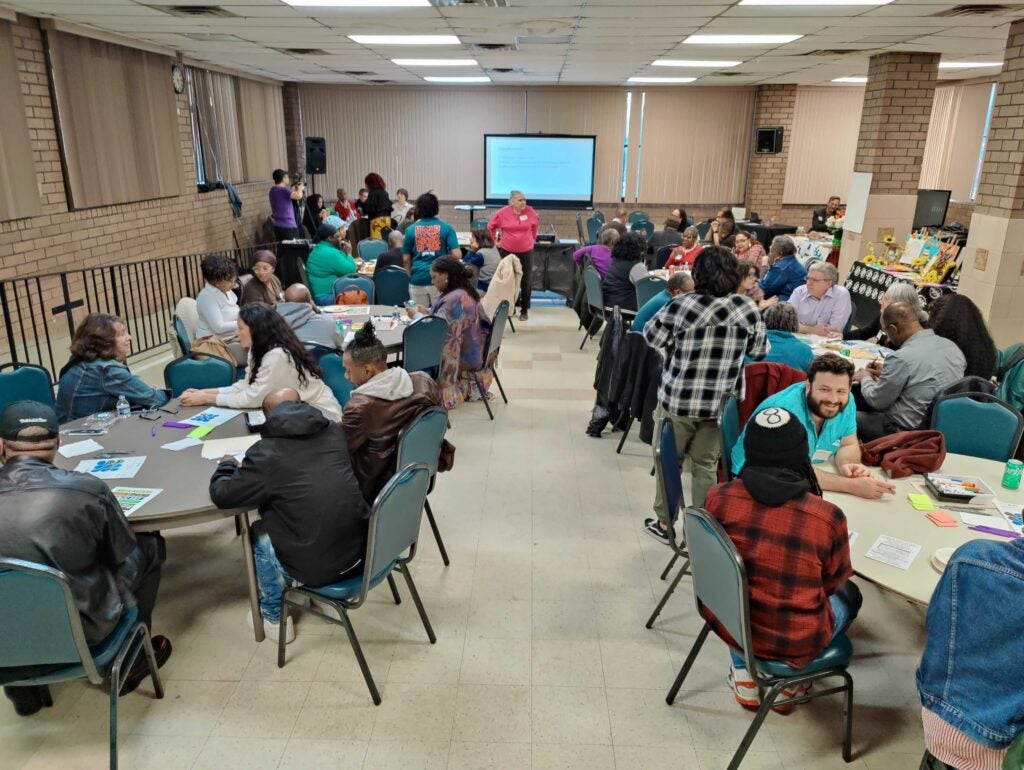
Attendees were asked questions like: What was a memorable cultural event you recently attended? How do arts and culture contribute to your own well-being? What would you envision for Philadelphia’s arts sector?
Many of the participants work in the arts sector or want to. Several said they wanted to see things like more access to professional development and training, as well as more support structures for working artists.
Mentorships with community elders were brought up, as well as access to legal support and networking opportunities.
Poet and performer Elijah B. Pringle came with business on his mind.
“It’s very easy for artists to be creative, but to focus that creativity and understand how to fit it into what’s called a business plan, it’s not always easy,” he said. “Coming here tonight, I’m watching them actually enact the whole thing and making it into a cohesive business plan, which is awesome.”
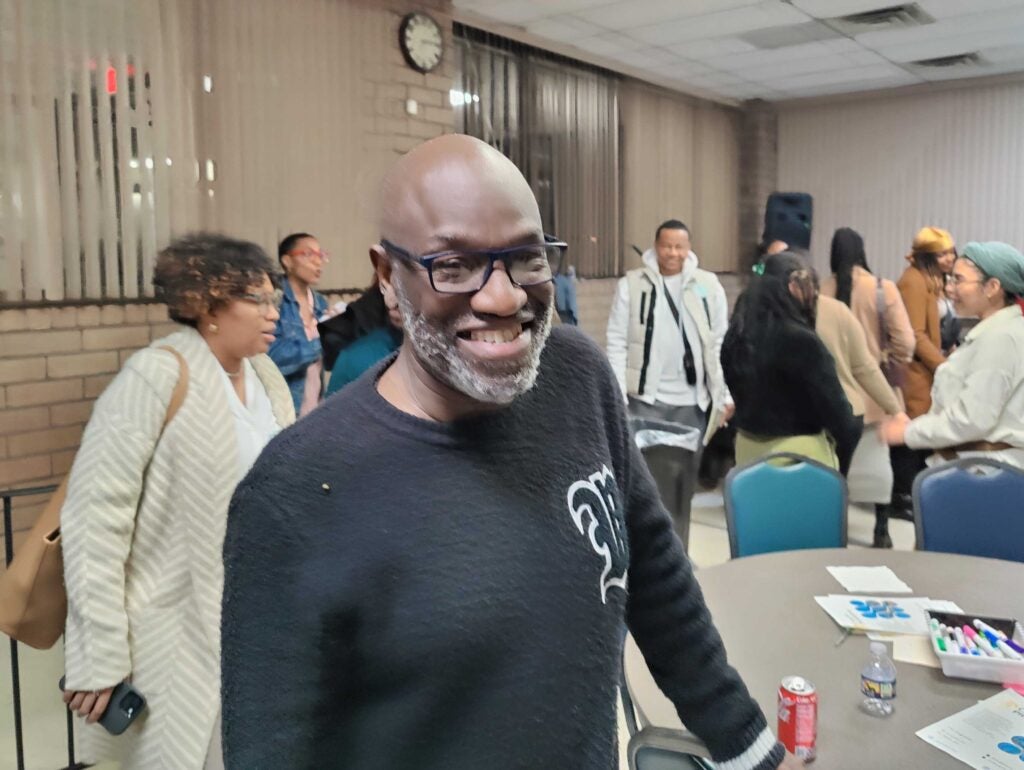
What was not addressed directly at the meeting was President Donald Trump’s ongoing funding cuts to the arts and culture sector, including the restrictions on the National Endowment for the Arts and the National Endowment for the Humanities, and the elimination of the Institute for Museum and Library Services.
Collectively, those federal agencies are the single largest source of funding for the arts sector. Over the last four years, they have distributed over $111 million into Pennsylvania, of which $42.5 million came into the Philadelphia region.
Gay is taking a long view. She wants the feedback received in these town hall meetings to be incorporated into the City Planning Commission’s long-term 2035 strategic plan.
“I can stand in the corner with my arms crossed and stamp my foot about all the things that are awful — and they are,” she said. “And, I can acknowledge it and say, ‘Great. We’re going to keep moving.’ Because this is a moment, what we’re dealing with. Hopefully, it is not permanent. It’s a moment, and we can get through the moment.”
Gay’s other agenda in the town hall meetings is to expand people’s definition of arts and culture. She prompts participants to examine what exactly is considered “culture” and what defines a creative act.
Audrey Coles came to the meeting because she feels it should be easier for people to find out about arts events. She said her creative life is primarily gardening.
“When you plant vegetables or fruit, it can produce a symphony of how it grows,” she said. “String beans can flow one way, sweet potatoes can grow another way, but each plant has a different type of leaf for flower that pours out a cacophony of events.”
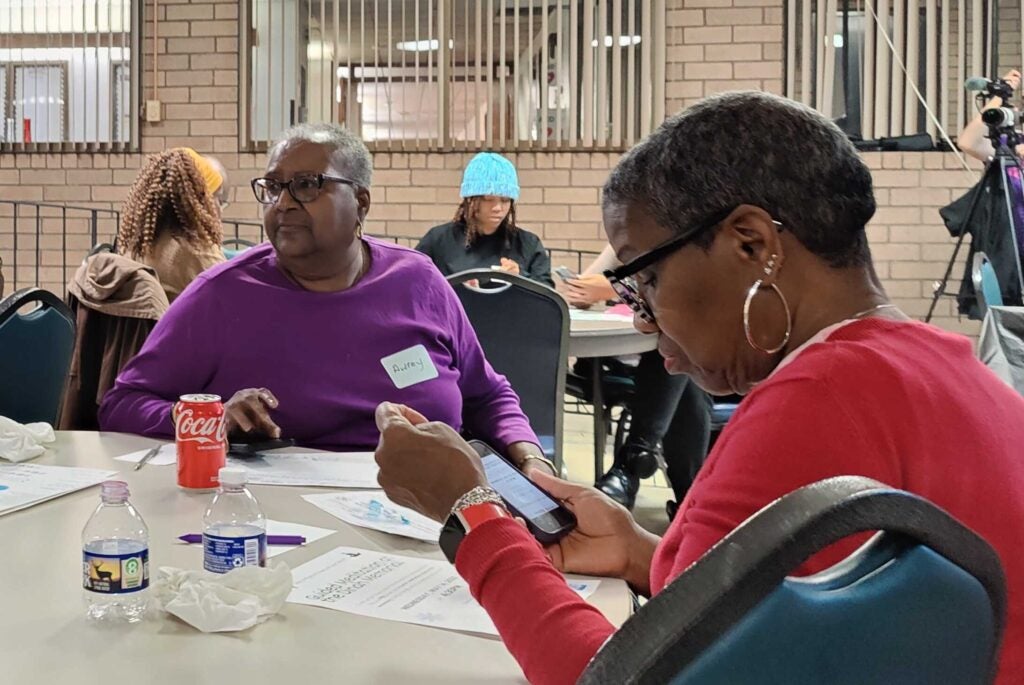
The next planning meeting is at the Bridesburg Recreation Center on April 26. Subsequent meetings will be announced as venues are secured. The final report with action items is expected to be released in the spring of 2026.

Saturdays just got more interesting.
WHYY is your source for fact-based, in-depth journalism and information. As a nonprofit organization, we rely on financial support from readers like you. Please give today.



